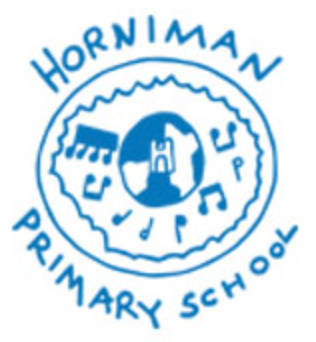British Values
At Horniman School, we actively promote Fundamental British Values. These are not just held by British people but are universal values that we wish to promote at Horniman School.
We recognise the diversity within our society and ensure that British Values are embedded within our curriculum. The teaching of British Values is integrated through the Spiritual, Moral, Social and Cultural (SMSC) learning that takes place across all curriculum areas.
Fundamental British values are defined as:
democracy
the rule of law
individual liberty
mutual respect for and tolerance of those with different faiths and beliefs and for those without faith.
We promote British Values in the following ways:
(Please note that this list is not exhaustive)
Democracy
Our Pupil Parliament promotes the democratic process – children nominate and vote for their representatives within each of the Pupil Parliament Committees. Each class nominates members for each of the committees to represent the pupils' voice in the school. Each committee meets regularly to discuss issues raised and work together on various projects to improve the school within the remit of their committee's area of responsibility. Each year representatives from the Pupil Parliament visit the Mayor’s Office and meet the Mayor and Young Mayor of Lewisham.
Our marking policy encourages feedback enabling children to respond to and influence the learning process.
Children create and adhere to class rules.
Children and parents are surveyed and the results of those surveys inform aspects of the School Improvement Plan.
Children participate in whole school debates, in which children argue for or against a motion. Children vote on the issue before and after, and also indicate if they have changed their mind because of any of the arguments. Recent debates have included: Doctor’s should not be allowed to strike, Britain should accept refugees and People should nit own pets.
Children are encouraged to voice their opinions in formal and informal ways (suggestion boxes, questionnaires, class discussions, circle time).
Assemblies are delivered focusing on elections and the role of democracy in Britain.
Participation in UK Parliament week, exploring the role of Parliament and what a democracy is
Individual Liberty
Children are given opportunities to develop their self-knowledge, self-esteem and self-confidence through PHSE lessons, praise and feedback, circle times, recognition of achievements and progress
Children are provided with clear boundaries which encourage them to make choices safely.
Children are encouraged to respectfully express their views and beliefs.
Children have key roles and responsibilities within school, such as: School Council, Playground helpers, Peer Mentors etc
Children are given opportunities to contribute to their local community and respond to global events. For example, singing at a residential home or collecting donations for a food bank,
Children have the opportunity and are encouraged to take part in a broad range of extra-curricular activities.
Children are encouraged to know, understand and exercise their rights and personal freedoms and advised how to exercise these safely, for example, through our PHSE and online-safety lessons.
Children know who to speak to if they are worried or concerned about themselves or others, e.g. safeguarding officers, teachers, support staff
Respect of those of different faith and beliefs
We celebrate major religious festivals throughout the year, through assemblies, displays and class work. We discuss similarities and differences in faiths and emphasise an appreciation for and respect for their own and other cultures.
Our RE and PSHE curriculum provides children with a broad and balanced understanding of world religions and promotes respect for the beliefs of others.
Our staff are representative of our school community.
We celebrate diversity and recognise we are all different.
We have a pupil diversity committee
Diversity is a curriculum driver
Mutual Respect
Children work in teams, share ideas in public and show respect for other children’ opinions during class discussions, assemblies and concerts.
School rules reinforce mutual respect.
All members of the school community treat each other with respect and model this in behaviour with colleagues and children.
Children work together in different groups and situations in different lessons and subjects.
We recognise differences in gender, sexuality, ability, religion and race. We celebrate these differences and respect those who are different form ourselves.
The Rule of Law
We have clear rules and expectations of behaviour .
We have a pupil diversity committee
The school works restoratively. A restorative approach looks at a problem from the perspective of the harm that has been done and how it can be repaired. For more information see our Good Behaviour and Attitude to Learning Policy.
Whole school rules are communicated and regularly referred to.
School collective worships follow regular themes and include school rules, rights and responsibilities, e-safety, road safety, stranger danger and caring for the environment.
Attendance and punctuality is good and all stakeholders are aware of the importance of being at school.
Children follow, respect and understand the need for different rules in different situations, i.e. PE lessons, school visits, classrooms and the playground.
Children are awarded weekly certificates in recognition of their learning behaviours in What a Star assemblies.
In British History children study the changes in British law over time. Year 6 visit the Royal Courts of Justice as part of this topic.
Visits from emergency services reinforce the rule of law and the reasoning/purpose behind them.
The school supports children in regulating their own behaviour to make choices for the well-being of themselves and others.
